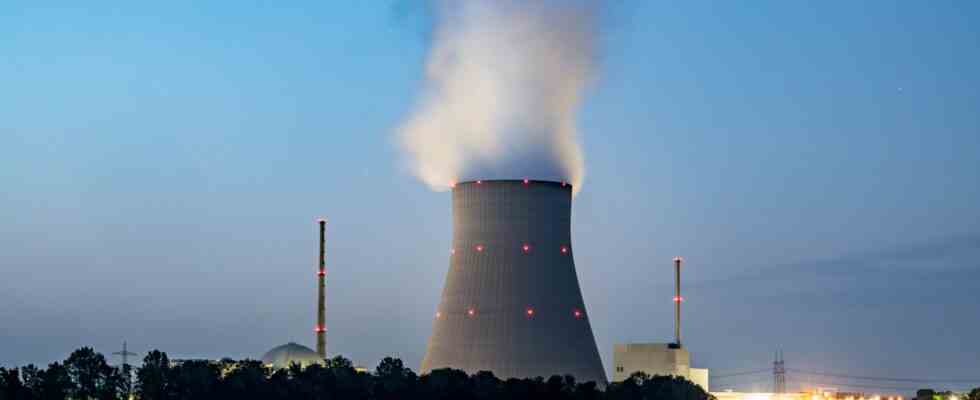Status: 05.10.2022 4:43 p.m
Contrary to expectations, the cabinet has not yet dealt with the continued operation of two nuclear power plants beyond the end of the year. The plans of the Ministry of Economics do not go far enough for the FDP. She wants to keep the piles running until 2024.
So far there is no agreement in the federal government on the limited continued operation of two southern German nuclear power plants. Contrary to the plans of Federal Economics Minister Robert Habeck, the cabinet did not deal with a draft from his department about the continued operation of two nuclear power plants until spring. “The departmental coordination on the legal implementation of the nuclear deployment reserve is still ongoing,” said the Federal Ministry of Economics.
The draft provides for the Atomic Energy Act and the Energy Industry Act to be supplemented with regulations that create the framework for a “operational reserve” for the Isar 2 and Neckarwestheim nuclear power plants limited in time until April 15, 2023. This should – if necessary – keep “controllable generation capacities” in the German power grid.
Lindner in “great concern”
The FDP reiterated its demand for significant extensions of the term. Finance Minister Christian Lindner proposes that all three remaining German nuclear power plants should be allowed to run until 2024.
In addition, it must be checked how many of the nuclear power plants that have already been switched off could safely be put back into operation, said the head of the FDP to the dpa news agency. He is very concerned about the energy supply. “I think in this crisis we all have to recognize what the signs of the times are.” Germany must have all power generation capacities connected to the grid.
The Greens accused the FDP of partisan reasons. The deputy leader of the Greens parliamentary group, Julia Verlinden, told the dpa that the proposal for an operational reserve for the two southern German nuclear power plants had been known for several weeks. “Now there is a draft law from two ministries, and we are amazed that the FDP does not want to take a position on this draft law for reasons of party tactics.”
One thing is clear: “By April next year at the latest, the last German nuclear power plants would finally be taken off the grid, even with an operational reserve. An extension of the service life is a wooden path in terms of energy policy, endangers people and nature and cannot be done with the Green parliamentary group.”
Habeck assumes a limited extension
Habeck said a week ago that his ministry is currently assuming that the “reserve” will be drawn and that the Isar 2 and Neckarwestheim nuclear power plants will continue to be connected to the grid in the first quarter of 2023. Like the Emsland nuclear power plant in Lower Saxony, they should actually be taken off the grid at the end of the year.
A spokeswoman for Chancellor Olaf Scholz pointed out that Habeck had agreed with the operators of the nuclear power plants in Bavaria and Baden-Württemberg on key points for the implementation of the planned deployment reserve. There is also an agreement in the coalition agreement. There it says: “We are sticking to the German nuclear phase-out.”
A spokesman for Environment Minister Steffi Lemke referred to statements by the minister. Lemke had said that she ruled out extending the service life beyond the coming winter and the necessary new procurement of fuel elements.

